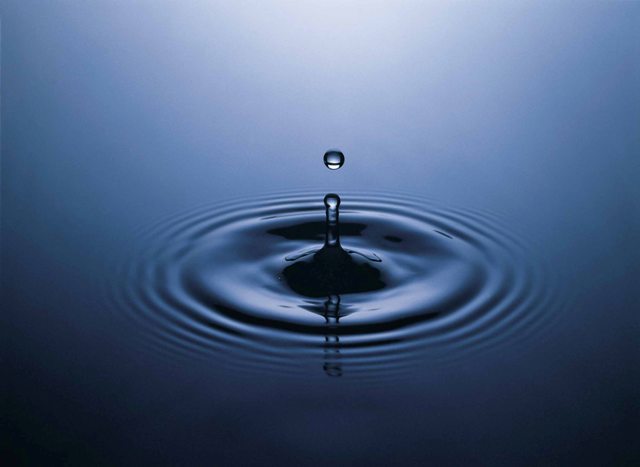
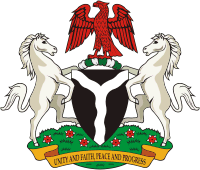 Shanshan spent Tuesday 27th to Friday 30st November in Nigeria's capital Abuja to understand and improve a Customer's purchasing and logistic processes. Her first time on the African continent, she witnessed business & opportunities in this oil-drenched and resourceful country, as well as great struggle of society and its members alike to embrace modernity. At least Nigeria has the "Go-Slow" in common with major capitals all over the world, otherwise known as the darn traffic-jam, allowing the street's entrepreneurs to trade their commodities to deadlocked travellers.
Shanshan spent Tuesday 27th to Friday 30st November in Nigeria's capital Abuja to understand and improve a Customer's purchasing and logistic processes. Her first time on the African continent, she witnessed business & opportunities in this oil-drenched and resourceful country, as well as great struggle of society and its members alike to embrace modernity. At least Nigeria has the "Go-Slow" in common with major capitals all over the world, otherwise known as the darn traffic-jam, allowing the street's entrepreneurs to trade their commodities to deadlocked travellers.
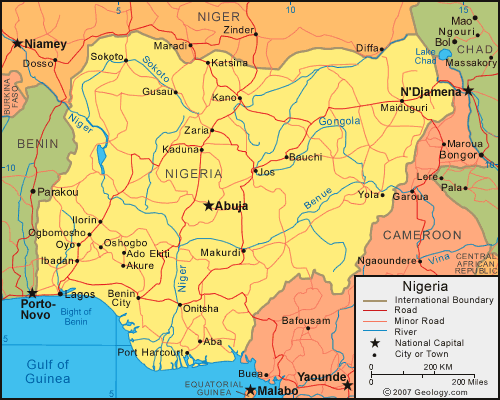 The Federal Republic of Nigeria is a federal constitutional republic located in West Africa, and shares land borders with the Republic of Benin in the West, Chad and Cameroon in the East, and Niger in the North. Its coast lies on the Gulf of Guinea, part of the Atlantic Ocean, in the South. Moreover it is the most populous country in Africa and the eighth most populous country in the world, with a population of over 140 million. Being a founding member of OPEC, oil revenues account for 40% of the GDP, and it is the 12th largest producer of petroleum in the world and the 8th largest exporter, and has the 10th largest proven reserves. However to ordinary citizens, water is far more precious then oil, as just over half the population has access to potable water. Uncontrolled industrial activity and improper waste management also often pollutes precious waterways and groundwater.
The Federal Republic of Nigeria is a federal constitutional republic located in West Africa, and shares land borders with the Republic of Benin in the West, Chad and Cameroon in the East, and Niger in the North. Its coast lies on the Gulf of Guinea, part of the Atlantic Ocean, in the South. Moreover it is the most populous country in Africa and the eighth most populous country in the world, with a population of over 140 million. Being a founding member of OPEC, oil revenues account for 40% of the GDP, and it is the 12th largest producer of petroleum in the world and the 8th largest exporter, and has the 10th largest proven reserves. However to ordinary citizens, water is far more precious then oil, as just over half the population has access to potable water. Uncontrolled industrial activity and improper waste management also often pollutes precious waterways and groundwater.
Stay-over was too short and work too much to fully savour Nigeria's culture & environment, anyhow a couple of intriguing stories & observations. First of all, origin of the second-hand automobiles is easy to trace, as proud owners leave the DK, B, D ... country stickers attached as a token of quality. Most cars long retired in Europe, but double their second life over here, until they literally fall apart, and still re-usable parts boost the life of another fortunate vehicles. Main means of transport is not cars but the Okada, commercial motorcycle riders which carry passengers for hire. Beware of filling up your tank ... Shanshan's Customer - a construction firm - provide their own network of gas stations throughout the country, as fuel on the free market risks to be thinned with water, wrecking the engines.
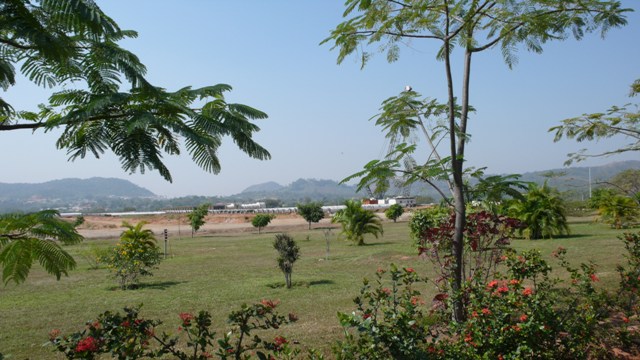
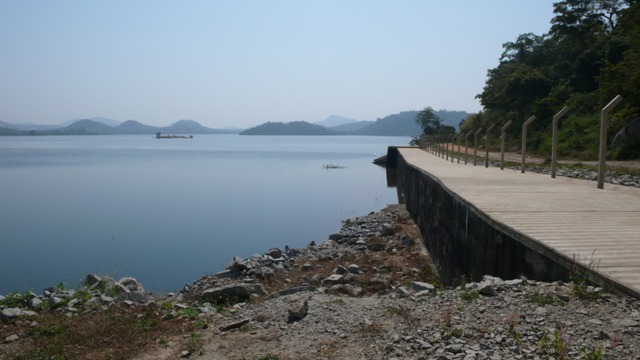
Quick snapshot of the plains and main water reservoir of the town.
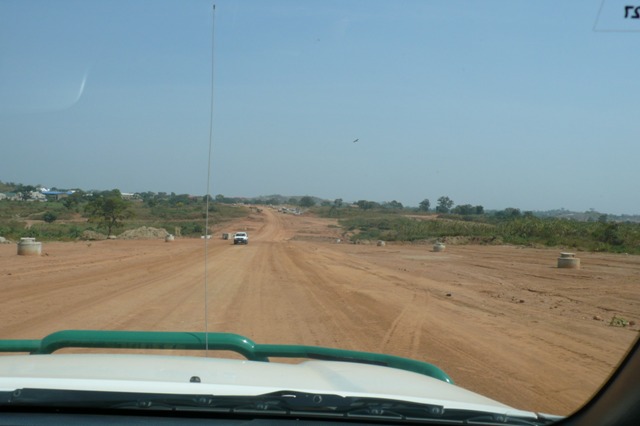
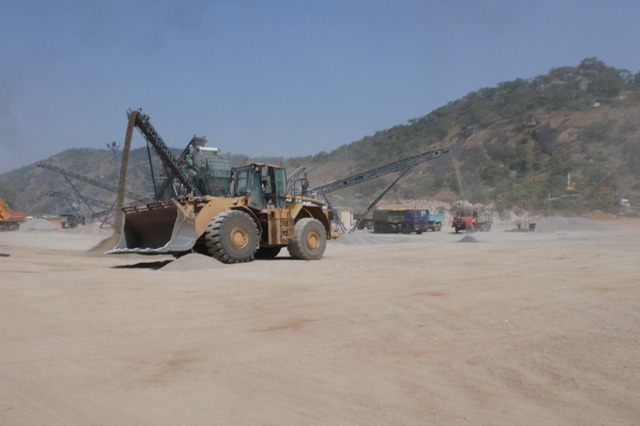
Sandy highways and excavators bought in Europe shuffling ground.
Being discriminated against in your own country is surprisingly accepted, like an otherwise very qualified and gentle Afrikaner (white South-African) refusing to share his car with his dark-skinned servants, who are obliged to follow him in their own car instead. Another colonial feel in the Chinese restaurant "Chopsticks" - ran by a Lebanese owner - where food is great, but indigenous people are kept outdoor, except for a big local chief surrounded by his body-guards.
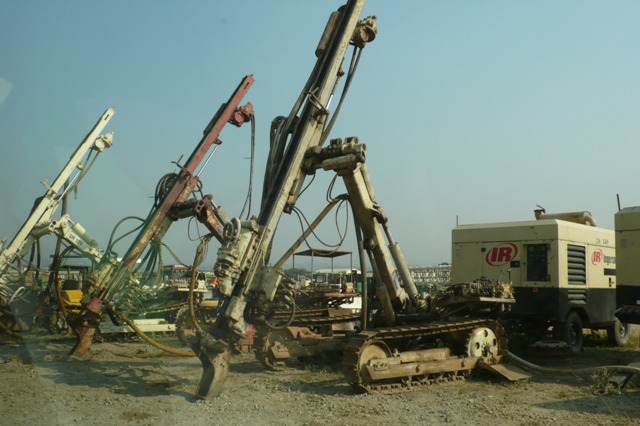
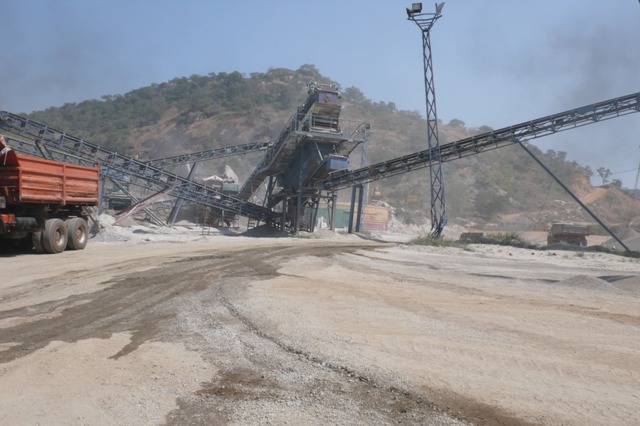
Pneumatic diggers ready to eat away soil, and a conveyor belt extending its legs like a scary spider.
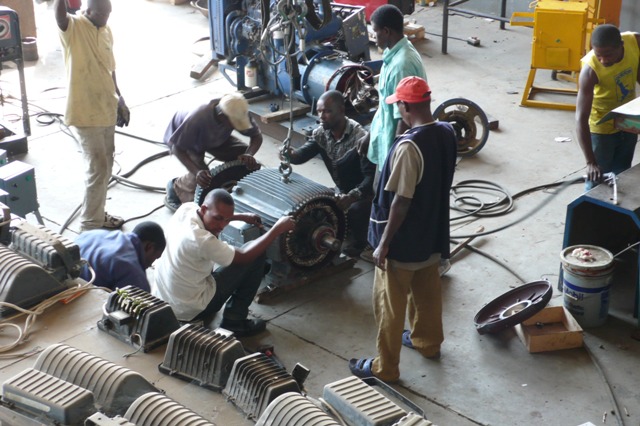
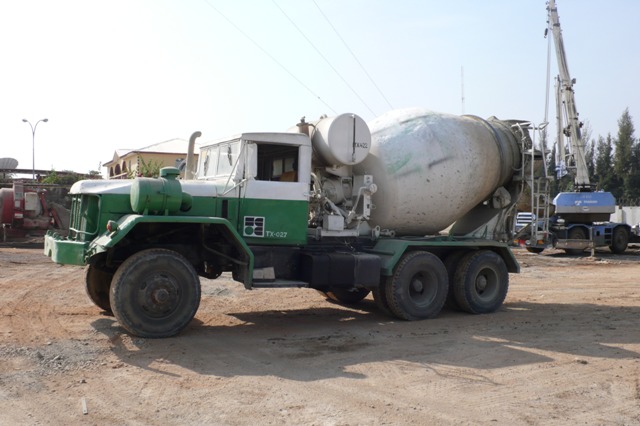
Men at work and cement truck from an era gone by.
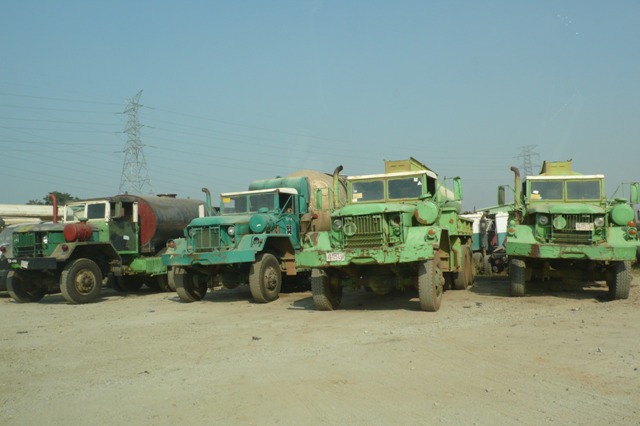
Colours don't match, but still fully functioning.
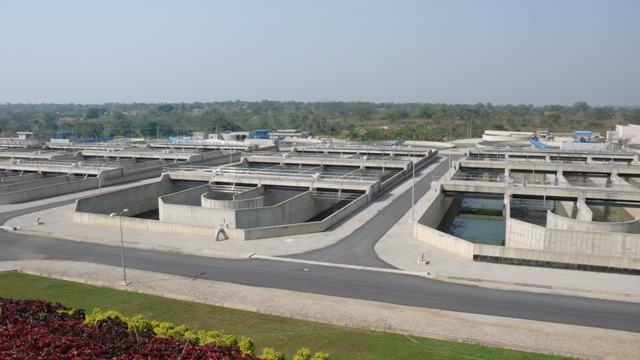
Modern water treatment plant.
On the bright side an amusing story being told by one of the contract workers, illustrating how our logic is sometimes out of tune with local custom. Answering the engineer if there is anything which can be done to facilitate life in the village, the Village Elder replies that his Father always had dreamt of an operational water tap. Indeed after a couple of months a well is tapped, and the new tap services all thirsty souls in the village. On the next tour of duty, the engineer inquires with the Village Elder, but rather than being pleased, he ordered all the plumbing to be undone. So deconstruction was carried out ... the reason ... since his five wives no longer had to travel many kilometers every day to collect water, serious quarrels had erupted within the family, which the poor guy was unable to control.
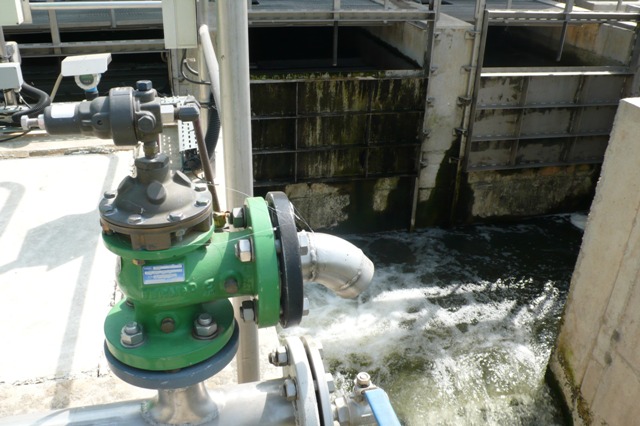
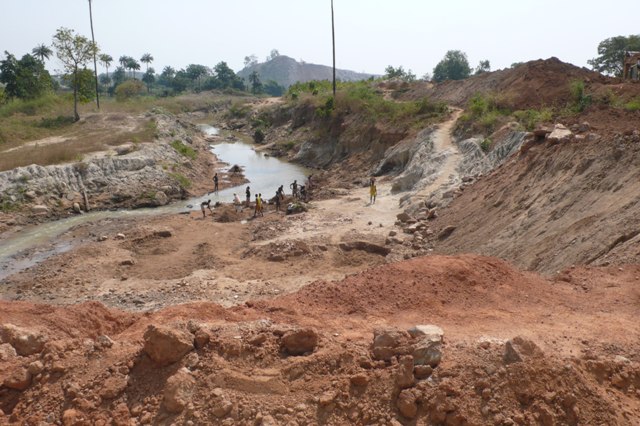
More land inwards many people never saw that much water flowing + Poor people offer to dive and dig out sand by hand out of a canoe a whole day, which after comparison was cheaper then using machinery. Albeit very strange how people you call everyday over the phone, work & live in an entirely different universe.
